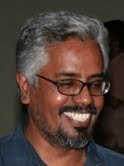MUNNAR DEMOLITIONS

Justice as Spectacle
Towards the end of Bertolt Brecht's play 'The Life of Galileo', there is a striking dialogue about heroism. Galileo's admirer, disappointed by the former's recantation, laments Galileo's failure to live up to his dream and says, "It is a pity that a land doesn't have heroes". Galileo makes a pithy reply, "It is a pity that a land needs heroes".
Images flood our horizons of vision and experience, and carry us away on top of the dizzying crest of the present. It leaves no time for looking back or in or away. For instance, how does one make sense of the images of Munnar demolitions? For one, they work at the most basic and sensual level, these images of voracious iron tentacles pulling apart concrete edifices and structures, bringing into the open its visceral innards. It is not just the meting out of justice on public display, one that touts a fitting lesson to everyone else. Obviously there is a certain kind of violence inherent in the scopic pleasure we derive from it. It is a war against the concrete in which everyone feels to be in the vanguard, in a terrifying kind of unanimity, all venting their righteous anger at injustice, amssed wealth, luxurious living and all the ills that haunt our little lives. And, true to the logic of the spectacular, we also have the heroic figures on display crusading for us. In this unopposed and unopposable war, where everyone is on the same side, all the (physical) damage is out there, in the open and before the public eye. It is also a case where the immediacy and instantaneity of television overtaking and driving all our priorities.
But where do we return to from this spectacle? Without the help of the very unreality of this spectacle how can we make an easy return to our petty, and not-so-ideal everyday selves?
One gets an uncanny feeling that underlying this penchant for the instantaneous (meting out of justice), crusaders (heroes we love to look 'up' to) and the spectacle (away and above us), is a deep suspicion or lack of belief in larger, longer socio-political processes - processes that are grinding and long term, but inexorably and dangerously close to our ordinary selves and daily lives – that world we inhabit and return to after consuming the spectacle. In a deeper sense, politics works on that very 'ordinary' self from which we yearn to escape, by giving it a new understanding and galvanising it to greater heights. But it is a process that demands a hero out of each and everyone of us….


0 Comments:
Post a Comment
Subscribe to Post Comments [Atom]
<< Home